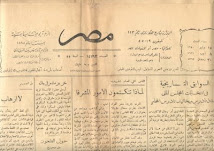 an independent religion apart from Islam. Despite a historically active Egyptian Bahá'í community during the early twentieth century, Bahá'í institutions and community activities are currently banned by Law 263. This law came into being in 1960, seven years after the founding of the Arab Republic of Egypt, at the decree of then-President Gamal Abdel Nasser. All Bahá'í community properties, including Bahá'í centers, libraries, and cemeteries, were confiscated by the government. The current Egyptian Bahá'í community, estimated to two thousand, has also had fatwas issued against it by Al-Azhar's Islamic Research Center, which charges Bahá'ís with apostasy.
an independent religion apart from Islam. Despite a historically active Egyptian Bahá'í community during the early twentieth century, Bahá'í institutions and community activities are currently banned by Law 263. This law came into being in 1960, seven years after the founding of the Arab Republic of Egypt, at the decree of then-President Gamal Abdel Nasser. All Bahá'í community properties, including Bahá'í centers, libraries, and cemeteries, were confiscated by the government. The current Egyptian Bahá'í community, estimated to two thousand, has also had fatwas issued against it by Al-Azhar's Islamic Research Center, which charges Bahá'ís with apostasy. In January 2001, 18 Bahá'ís, were arrested in the city of Sohag under the pretence of having violated Article 98(F) of the Penal Code ("insulting a heavenly religion") and other possible charges, 10 of whom were held in detention for over 10 months without being formally charged.
The Egyptian go
 vernment requires that its citizens identify as either Jewish, Christian, or Muslim, leaving others to either misrepresent their faith or forego valid identity documents, passports, birth and death certificates, and marriage licenses.
vernment requires that its citizens identify as either Jewish, Christian, or Muslim, leaving others to either misrepresent their faith or forego valid identity documents, passports, birth and death certificates, and marriage licenses. A May 2004 incident indicated that the Ministry of Interior has instructed officials to confiscate any identity cards belonging to Bahá'ís. The seriousness of such a matter is compounded by the essential nature of the identity card; it is linked to the ability to own property, attend university and have a business.
On 6 April 2006, human rights activists "welcomed a landmark ruling by the Administrative Court recognising the right of Egyptian Bahais to have their religion acknowledged on official documents." However, on 3 May 2006 it was reported that the Egyptian government will appeal against a court ruling in favour of the rights of the country’s small Baha’i minority..."
One member of parliament, Gamal Akl of the opposition Muslim Brotherhood, said the Baha’is were infidels who should be killed on the grounds that they had changed their religion.
One member of parliament, Gamal Akl of the opposition Muslim Brotherhood, said the Baha’is were infidels who should be killed on the grounds that they had changed their religion.
On November 28, 2006 the Supreme Administrative Court held a hearing on the situation of the Bahá'ís. The Bahá'ís were represented by the Egyptian Initiative for Personal Rights (EIPR) who submitted a brief which outlined the legal obligations of the government under the Egyptian constitution and international human rights law to protect the rights of freedom of belief and non-discrimination. The brief also responded to the government's claims that a recognition of the Bahá'ís would contravene Islamic Shari'a which only permitted Muslim coexistence of Christians and Jews and that Bahá'ís should be treated as Apostates from Islam.
Finally, the brief also responded to the government's claim that by allowing the Bahá'í Faith to be listed on official documents that public order would be violated; the brief noted that Bahá'ís had, for decades, been able to list their religious affiliation in their identification documents until the Egyptian Interior Ministry removed their choice in recent years and not accepted to insert the word 'others.'
On December 16, 2006, only after one hearing, the Supreme Administrative Council of Egypt ruled against the Baha'is and stated that the government may not recognize the Bahá'í Faith in official identification numbers.
The ruling leaves Bahá'ís unable to obtain the necessary government documents to have rights in their country; they cannot obtain ID cards, birth certificates, death certificates, marriage or divorce certificates, passports; they also cannot be employed, educated, treated in hospitals or vote among other things.
In January 2008, Egyptian courts have issued two rulings that, while restricted in scope, should ease some bothersome strictures. Bahais may now leave the space for religion on their identity cards blank. Ending four years of court controversies, including rulings that denied Bahaism exists as a religion.
Up till now Baha'is are still unable to obtain proper identification documents despite a legal ruling in their favor in February 2008.












5 comments:
Gamal Abdel Nasir was a gang leader
thanks for this article
great article
Thank you for reading.
you must read with confident
Post a Comment